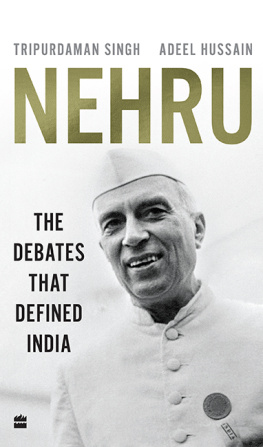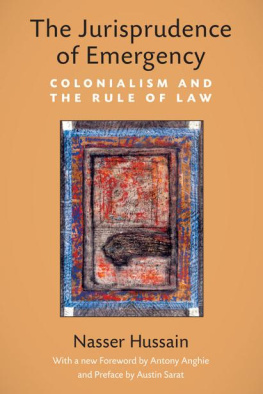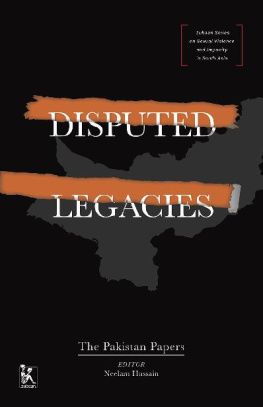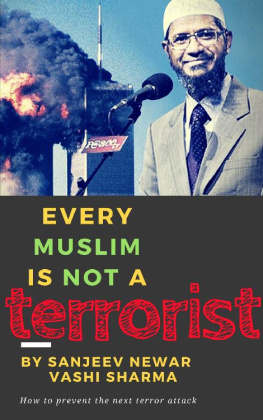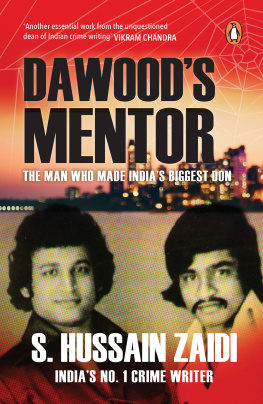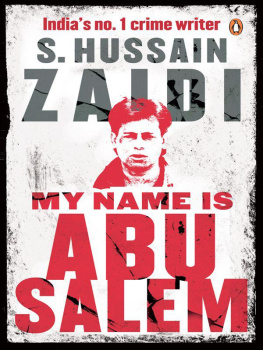Table of Contents
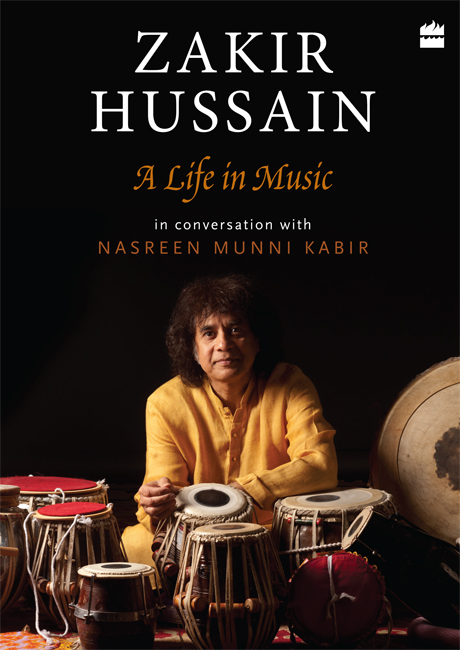
ZAKIR HUSSAIN
A Life in Music
In Conversation with Nasreen Munni Kabir

HarperCollins Publishers India
Contents
In the mid-1980s, I happened to spot Zakir Hussain in a well-known store in Bombays Taj Mahal Hotel. I had not met him formally before that day, but he appeared to be an approachable kind of person despite being a world-famous musician. However, greeting him without any introduction seemed an invasion of his privacy. And, after all, what could I say? That he played the tabla brilliantly, his dexterity and skill were magical to watch on stage, that I loved his music? Instead, I discreetly followed his movements around the shop from the corner of my eye, but just as he was about to leave the store, he gave me a lovely smile and said hello. Even though some forty years have passed since that random encounter, I can still recall his warmth and friendliness.
Since that time, and in many cities of the world, I have seen Zakir Hussain perform with a variety of musicians, both Indian and international. His extraordinary playing and the extreme sense of rigour that he brings to his art are clearly manifest. Among the many cherished evenings with Zakirs music, a most memorable one was seeing the path-breaking Shakti on stage in the 1970s. The Shakti sound was so exhilarating that I felt I was on an airport runway and my heart was about to take off.
The training that Zakir Hussain received under his father, the extraordinary Allarakha, started at a very young age, but it was not long before he began to receive acclaim for his own sound and style. As a musician, Zakir Hussain was considered a child prodigy; today he is considered a genius. Despite the international reputation and huge following that he now has, he wears his fame lightly. He remains a man of tehzeeb and humility. Zakir has broken many records and won many awards, but is always the first to credit the Holy Trinity of tabla players, Pandit Samta Prasad, Pandit Kishan Maharaj and his father, for their groundbreaking contribution to music, and for the fact that they elevated the very status of the tabla in the first place.
Having worked on a number of conversation-based books with the leading names of Indian cinema, I felt bold enough to try and approach this gifted musician with the idea of doing a similar book. Although I am neither a musicologist nor a music expert, I believe the discipline and passion that drive many artists to keep growing, whether as film-makers or musicians, are much the same. And so I convinced myself that even if my questions were not those of an expert, Zakir Hussains answers would help music lovers like myself to better understand his music and to discover the path his life has taken. There is so much to learn from Zakir Hussain. He is a musician who has for over six decades practised the art of the tabla, playing not only with four generations of master musicians of India, but accompanying many greats from the world of Western classical, rock and jazz.
I finally plucked up the courage to ask my friends Ayesha Sayani (affectionately known as Pooh) and Sumantra Ghosal if they could introduce us. I had seen Sumantras wonderful documentary, The Speaking Hand: Zakir Hussain and the Art of the Indian Drum, and knew that if they believed I could do justice to the subject, they would encourage me, and if not, I would be dissuaded. Ayesha, who had read some of my books, was instantly enthusiastic and said the best way forward was that she first introduce me by email, and that I then send a formal letter outlining the idea for a book and requesting to meet him on his next visit to Bombay.
It was entirely through the generosity of Ayesha Sayani and Sumantra Ghosal that, in January 2016, the four of us met. Since the meeting took place after the lunch hour at a well-known Bombay restaurant, we had the restaurant to ourselves. Zakir patiently heard me out as I explained that my area of research was cinema and not music, to which he said, So this would be a leap of faith? In any case, I do not want a how-to-play-the-tabla book. Our meeting ended with him saying that hed get back to me once he had read some of my books.
A few weeks later, Zakir phoned and very matter-of-factly gave me the go-ahead. I was absolutely delighted and immediately called Ayesha Sayani to share the news. I will always be grateful to Ayesha and Sumantra for encouraging me throughout, and believing that the book would happen. I extend my thanks to them again here.
For the following two years, between 2016 and August 2017, Zakir Hussain and I met in various citiesBombay, Pune, London and even Antwerp. Each of our fifteen sessions lasted for about two hours. Our conversations, mostly in English, peppered with Hindi/Urdu, were recorded on a small digital recorder and then transcribed. As many of the events we talked about date to the period prior to the renaming of Bombay to Mumbai, Calcutta to Kolkata and Madras to Chennai, I have used the original city names for consistency.
Working around the clock, Zakir also travels to every corner of the globe and gives about 200 concerts a year, but despite the pressure on his time, when he answered my questions he gave full and thoughtful attention. In London, we met at whichever hotel he happened to be staying, and in Bombay, we talked in his home in Simla Housea place that has been witness to over fifty years of Qureshi family history. In the course of our many conversations, his vast knowledge of every kind of music was evident, and his understanding of form and tradition, multilayered and insightful.
Zakir has a very quick and analytic mind. With his intuitive and instant reading of the musical expression of the artist with whom he is playing, it is no wonder that he can so easily accompany many different kinds of musicians. His years of teaching tabla in America and interacting with music students from all over the world is perhaps why he is also able to explain difficult musical concepts in a clear and accessible way. In fact, he can converse on any subject and has a natural flow of ideas with a phenomenal memory for anecdotes and incidentsmany fascinating stories are recorded here as he remembers his encounters with the great names in music.
Zakir Hussain is noticeably personable and friendly, but is also someone who likes doing things in a certain orderso if I happened to rush him, he would stop me and slow the pace down. The perfectionist in him would also lose patience with any errors that he would spot in our working drafts. It was important to him that things were just so.
This book has taken over two years to complete, and I hope it will serve as an introduction to an intelligent and thoughtful man who happens to be a truly exceptional musician. I believe only a multi-volume biography can even start to cover the many aspects of his lifes work and I hope this book is a step towards this possibility. Getting to know Zakir Hussain through the process of writing this book and to learn about music from a musician so gifted and yet who still has a sense of openness to take that leap of faith has been an immense privilege.
NASREEN MUNNI KABIR
Zakir Hussain (ZH): From the very start we were somehow tied togetherme and my dad. I was always very attached to him. As a child, I remember I used to stay up late into the night and refuse to sleep until he came home, and only then did I go to bed.
Around the time that I was born, my father was suffering from a heart ailment and was extremely unwell. Someone had told my mother that I was an unlucky child because my birth coincided with this most distressing time for the family. My father, whom we called Abba, was so critically ill at that time that many of his colleagues and friends came to say a last goodbye. This included Raj Kapoor, Nargis and Ashok Kumar who starred in



